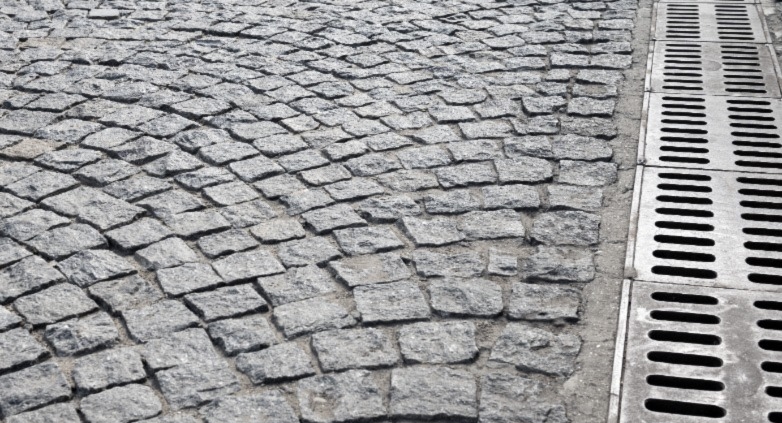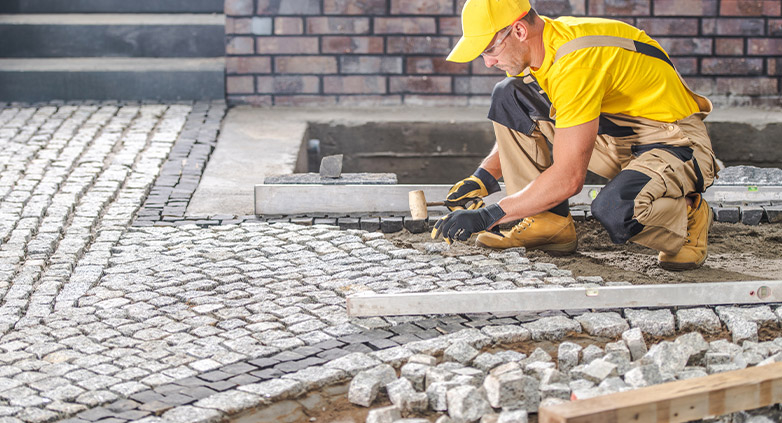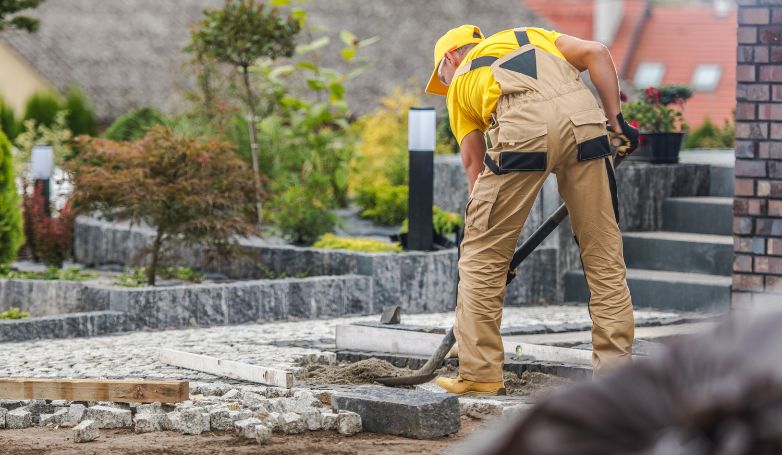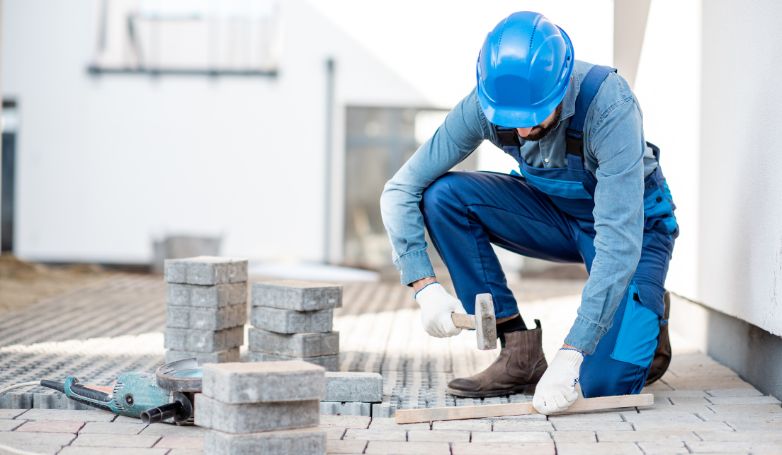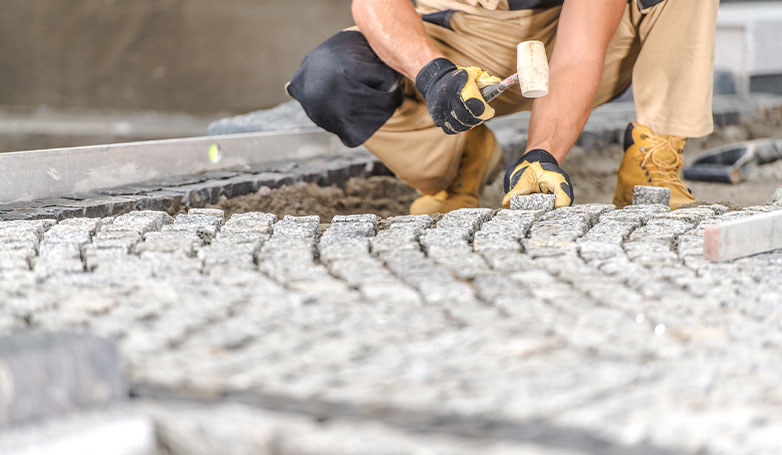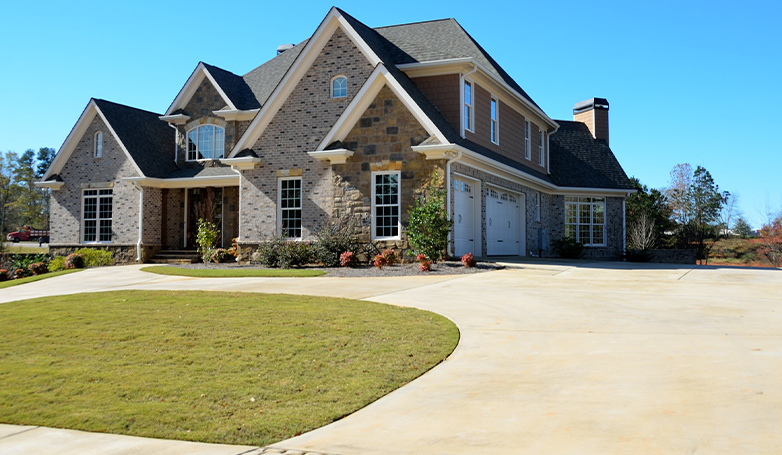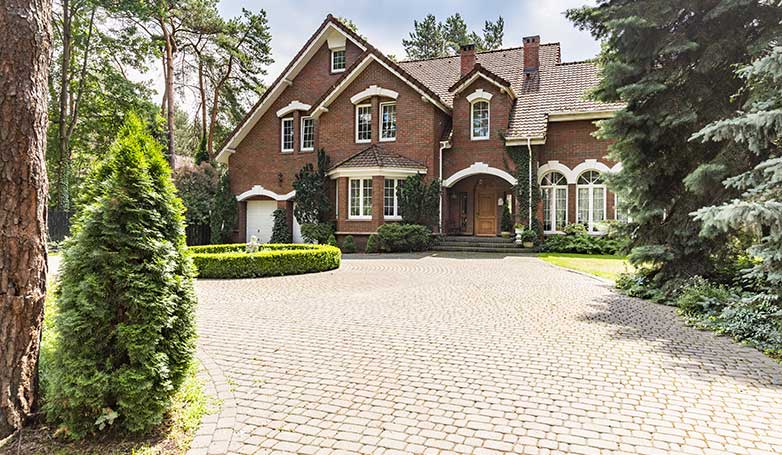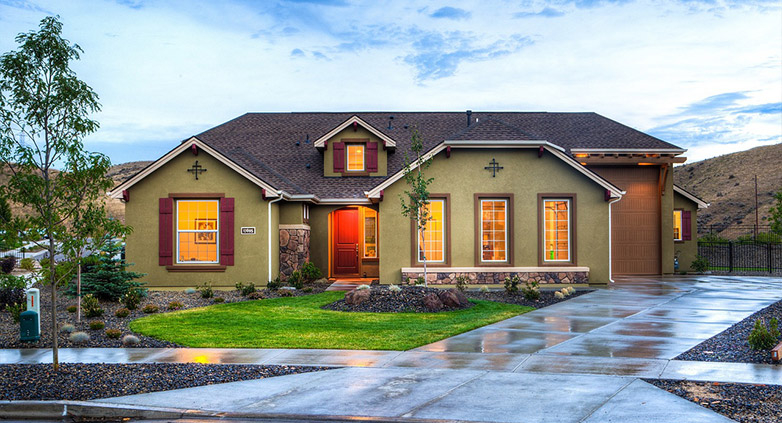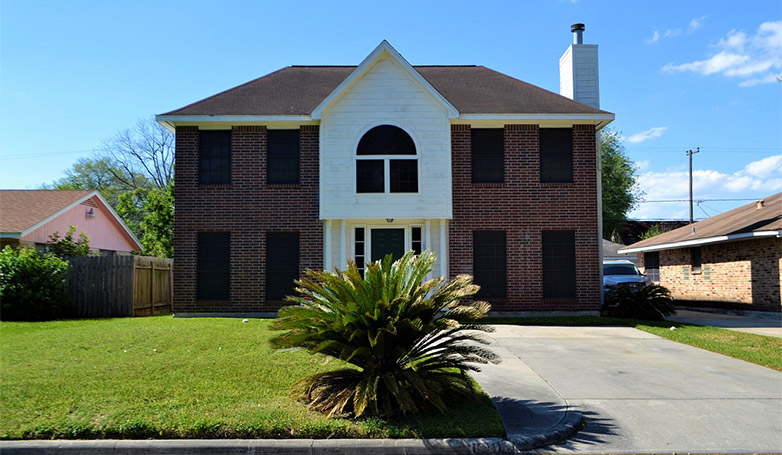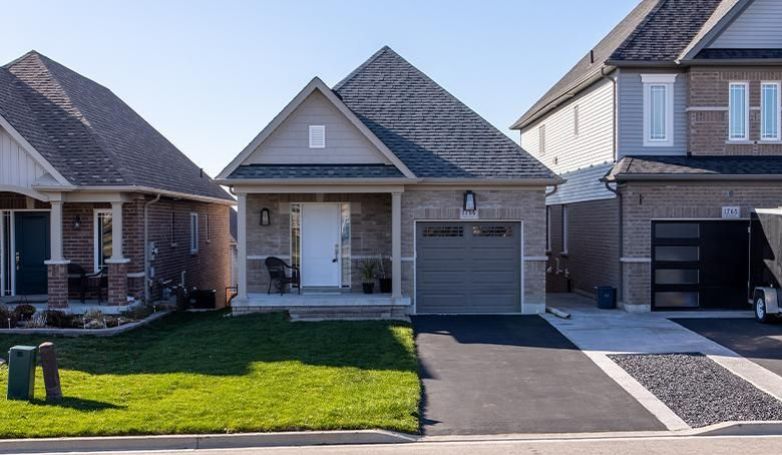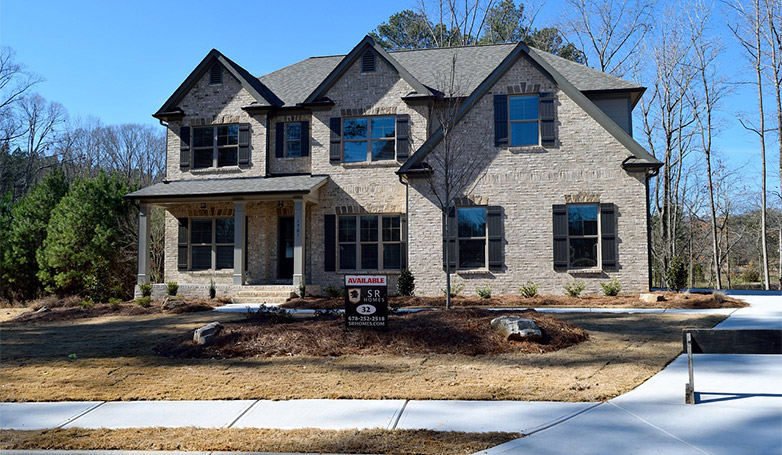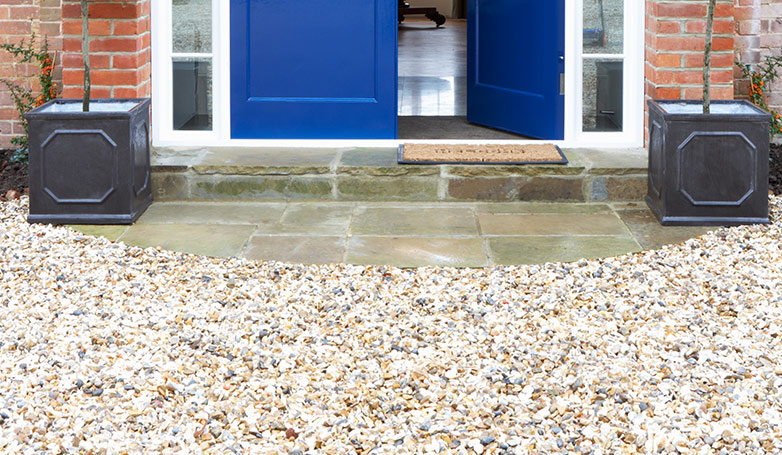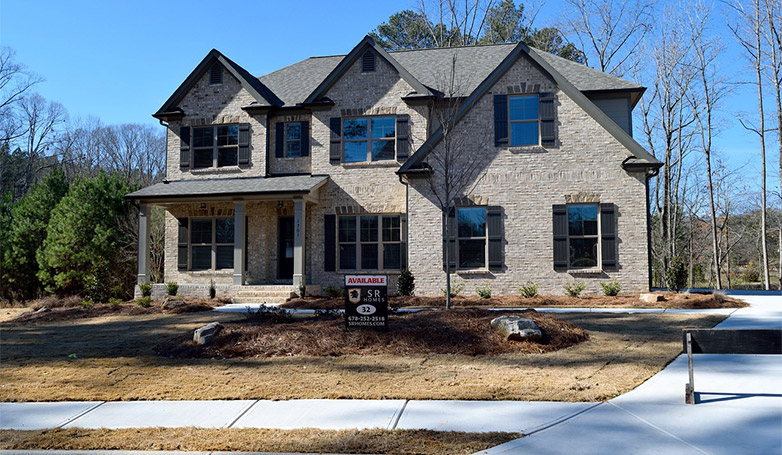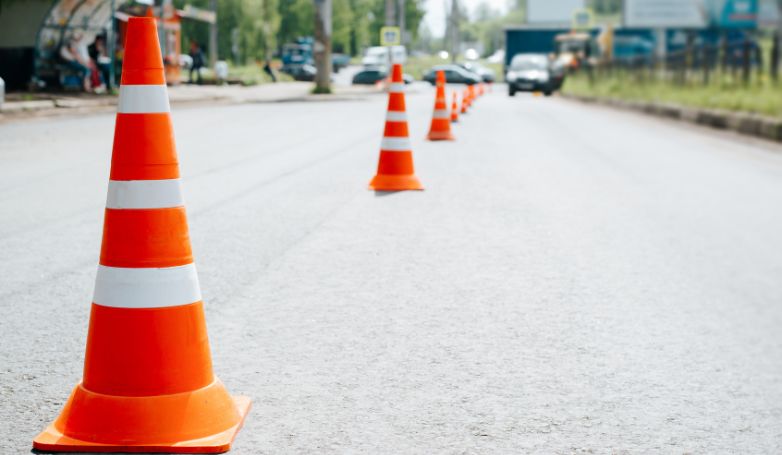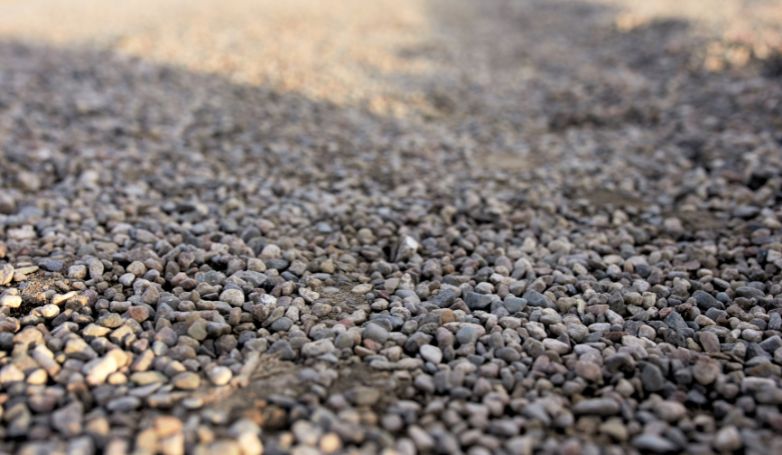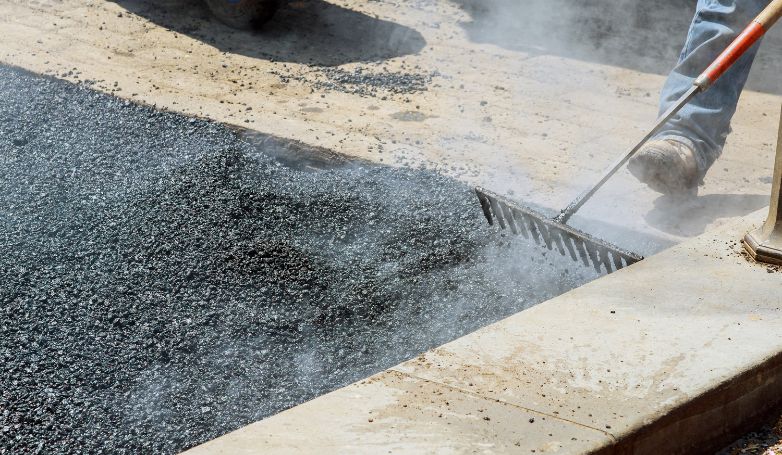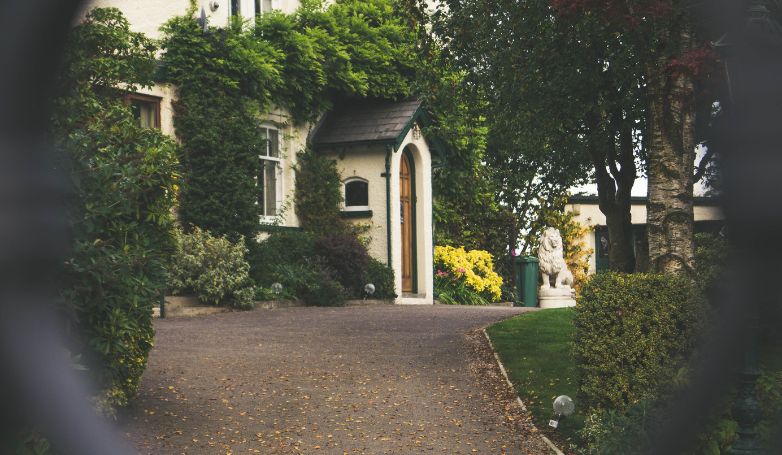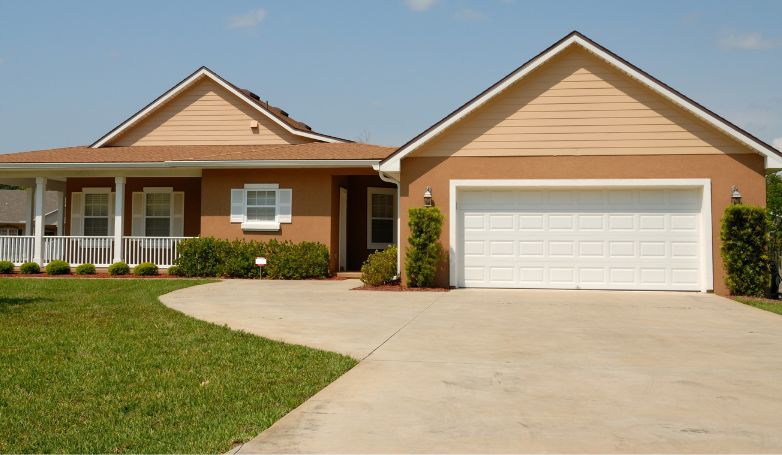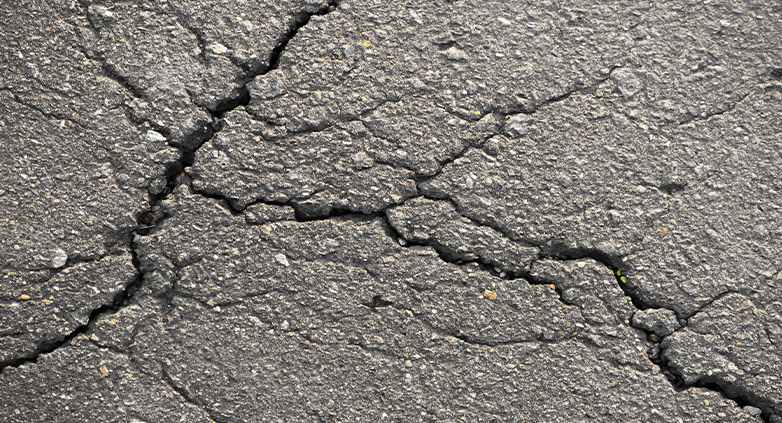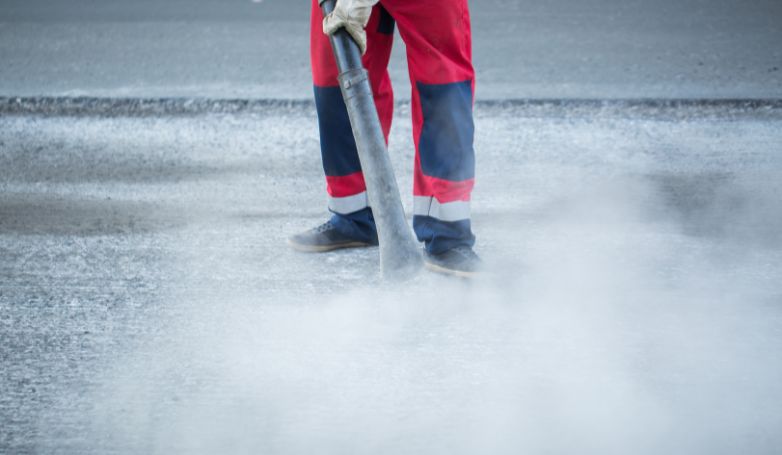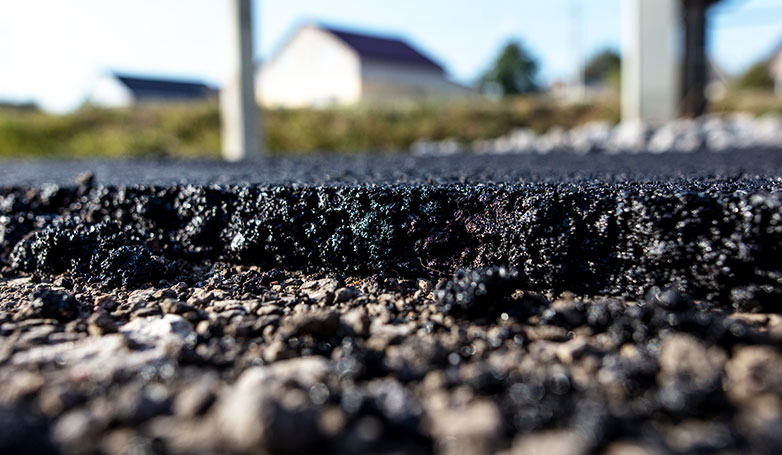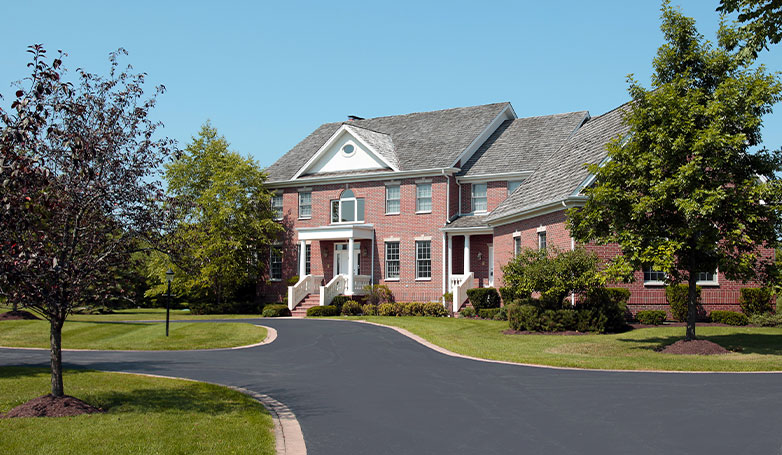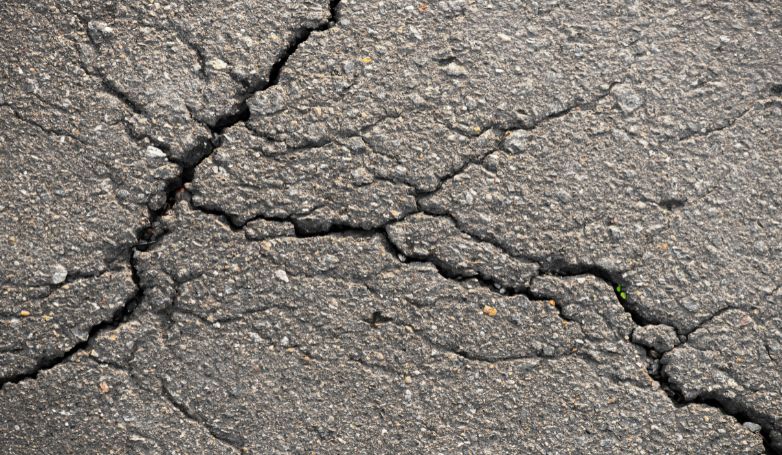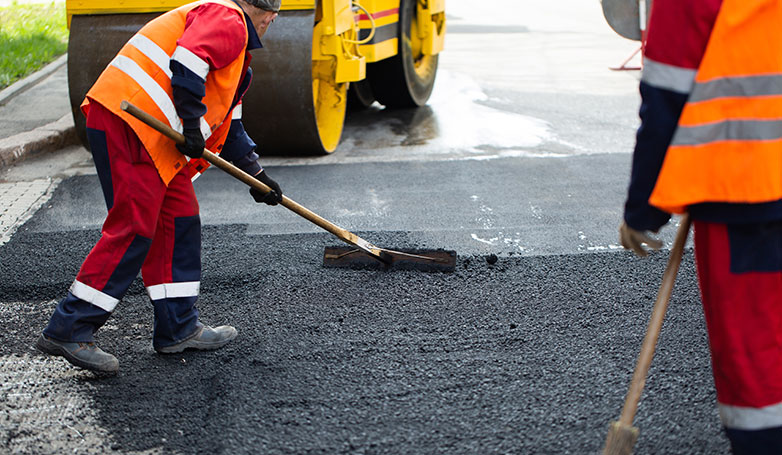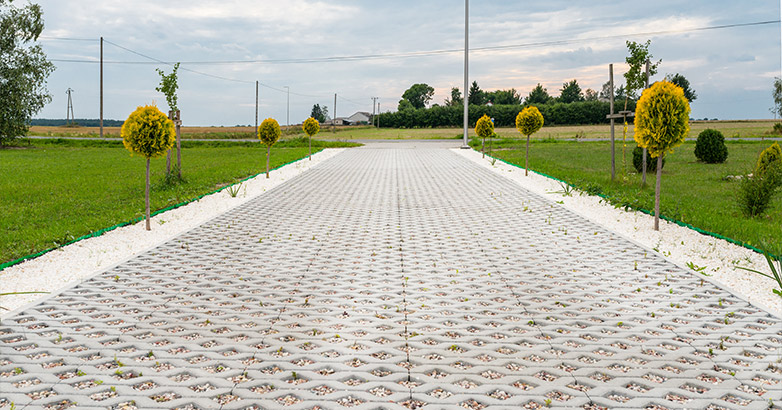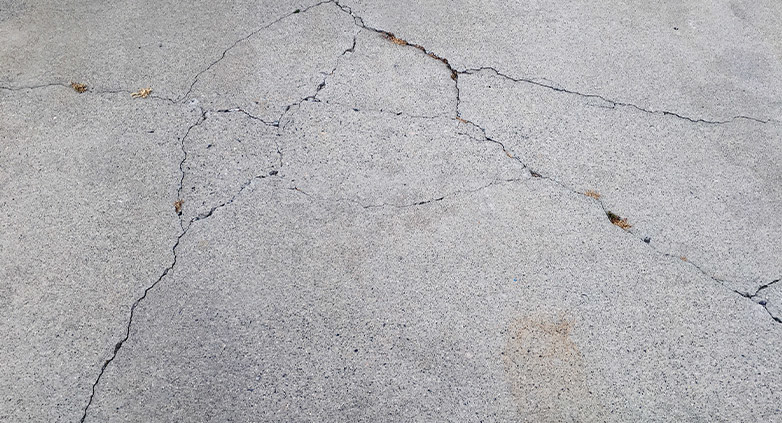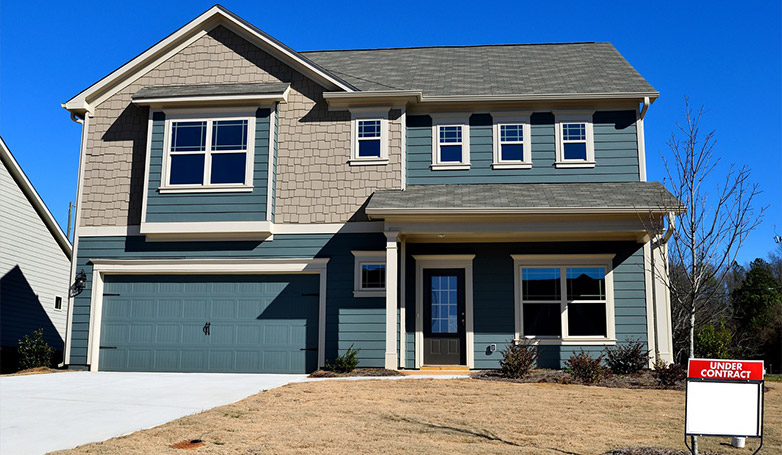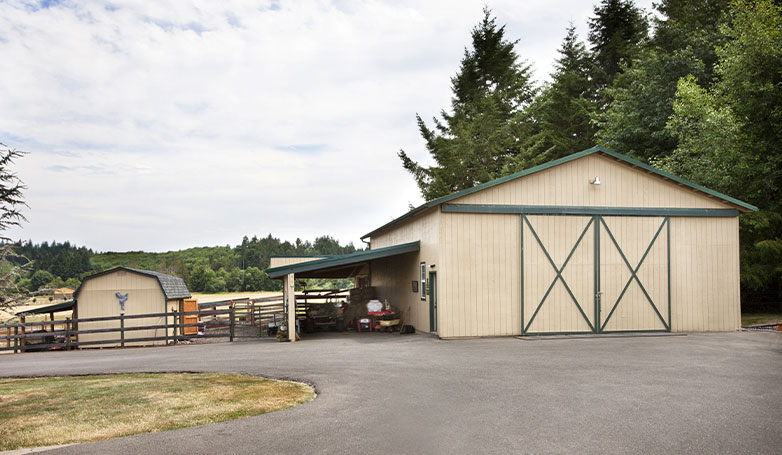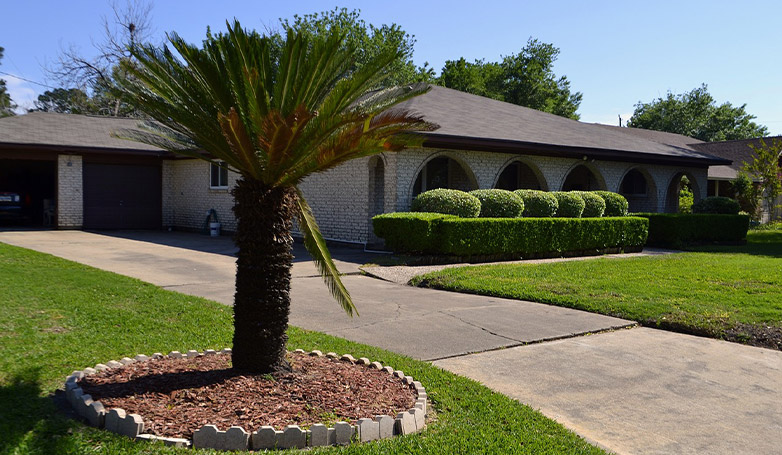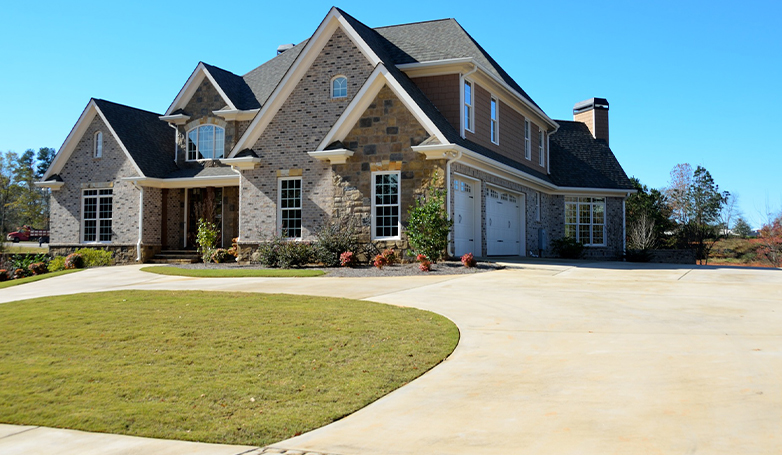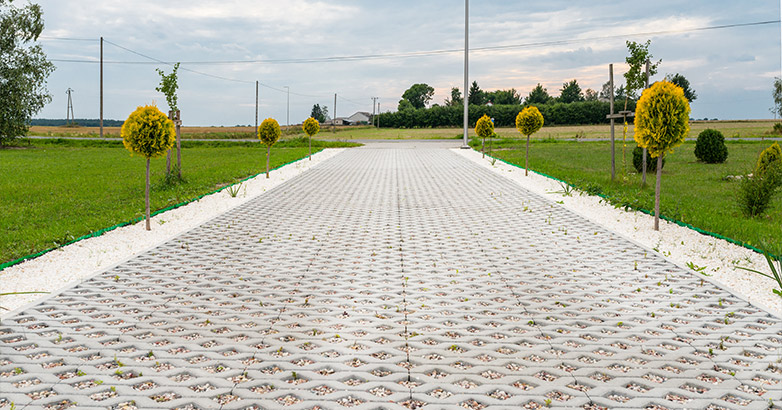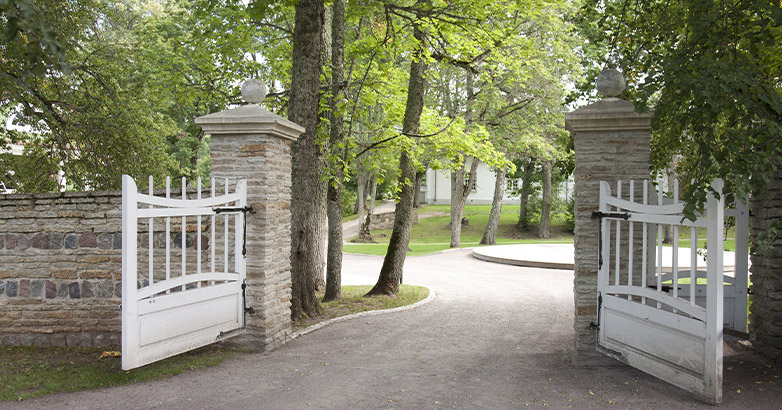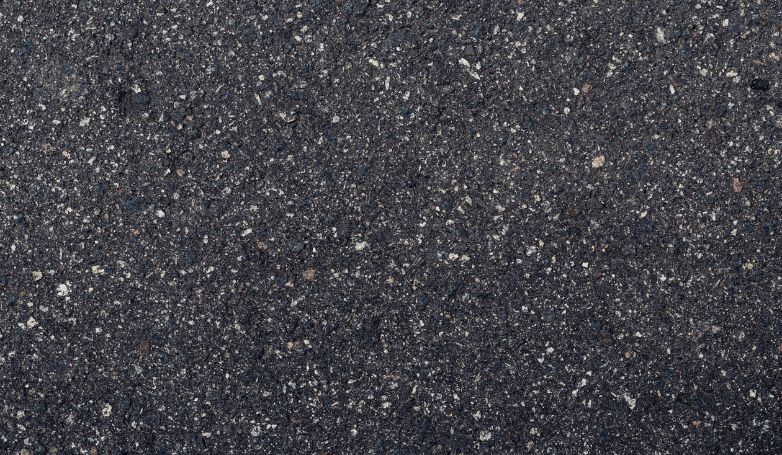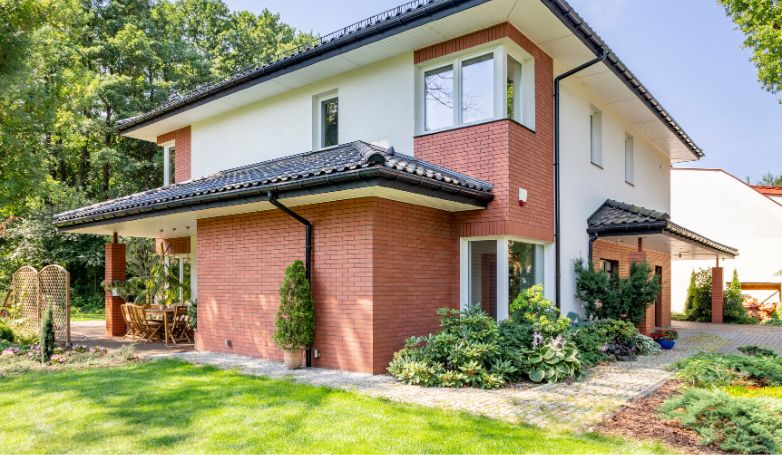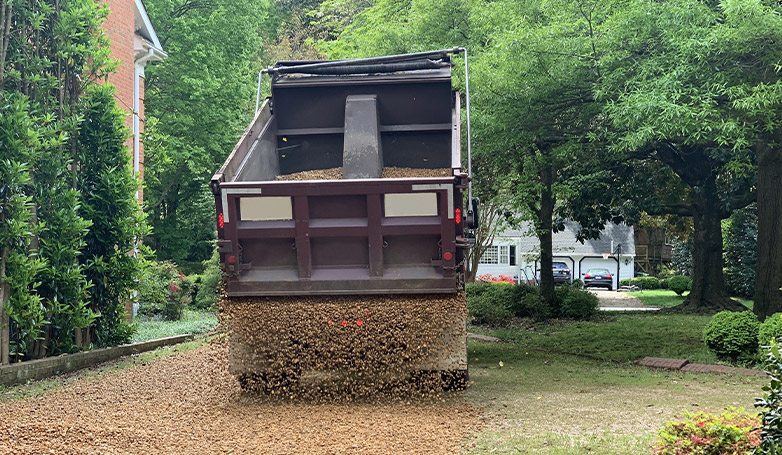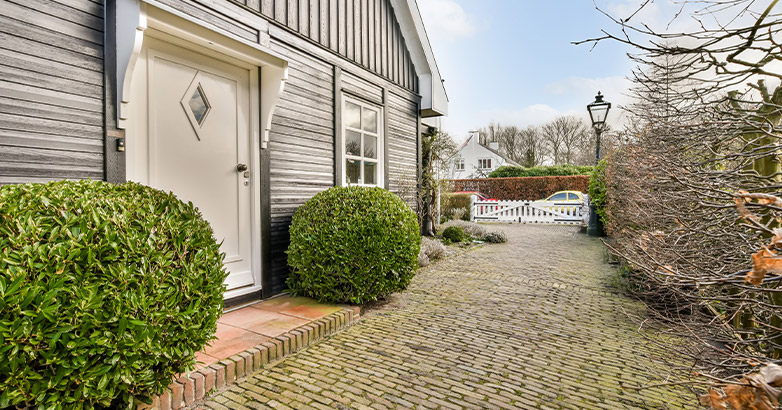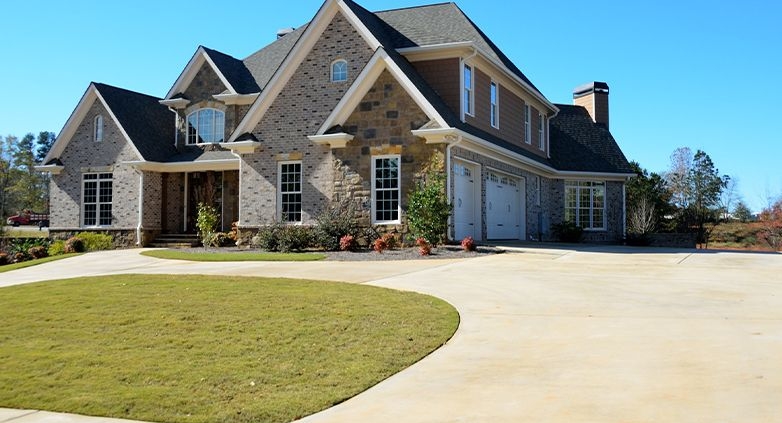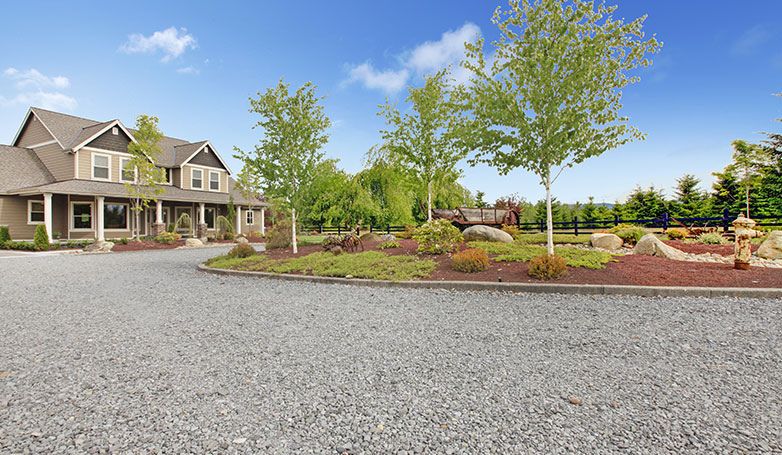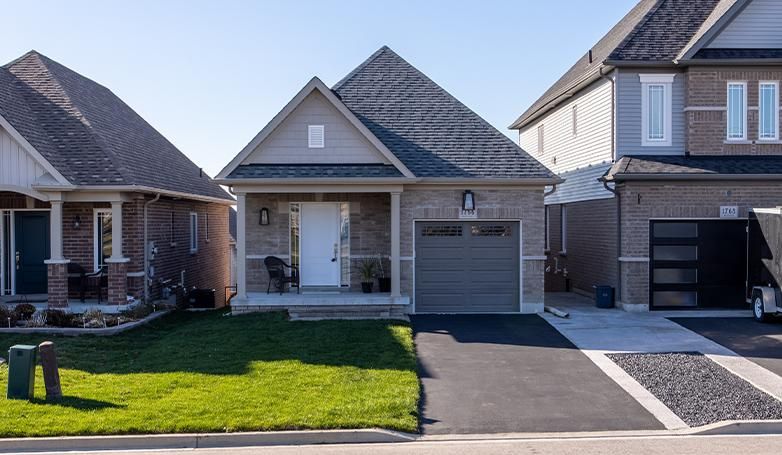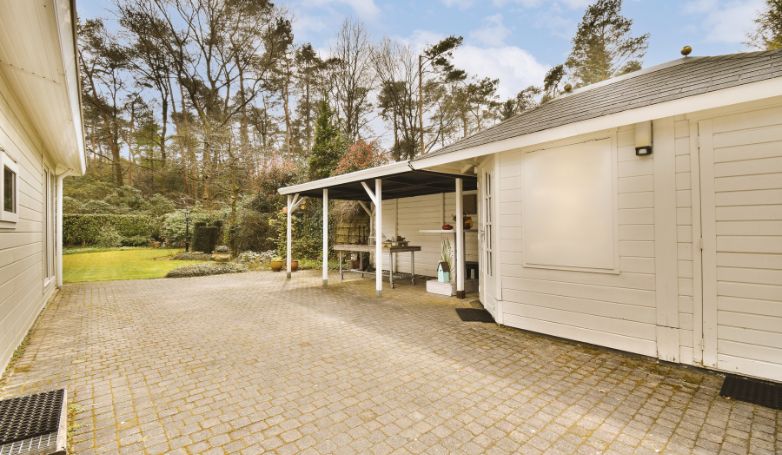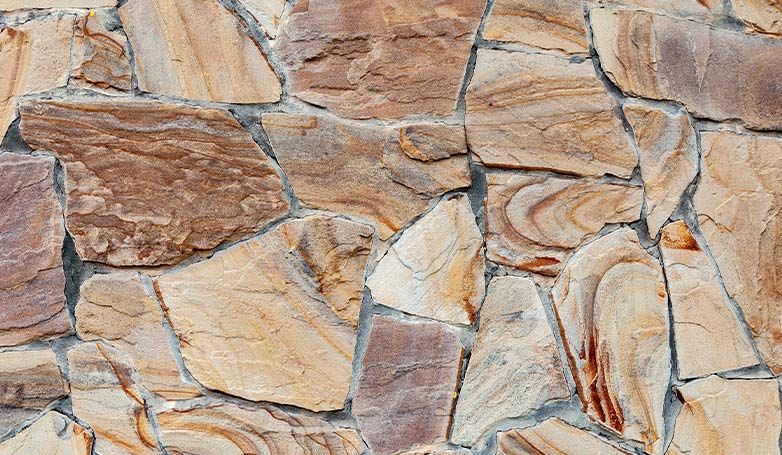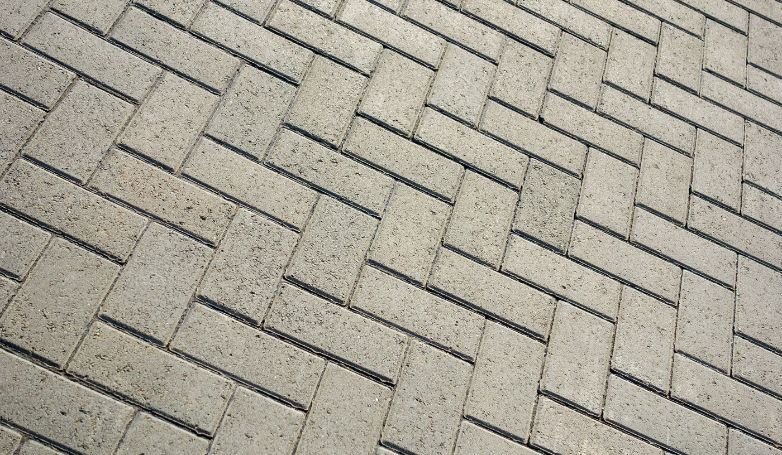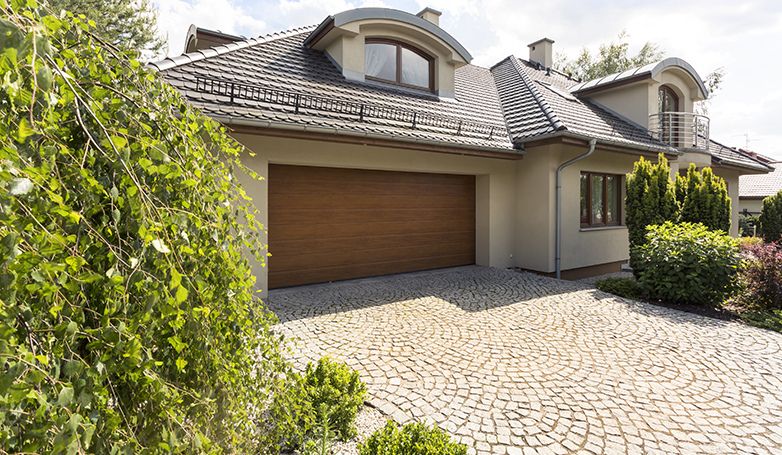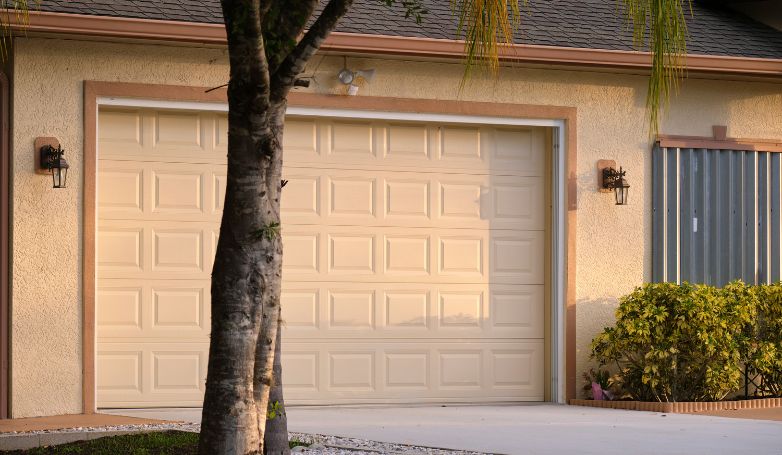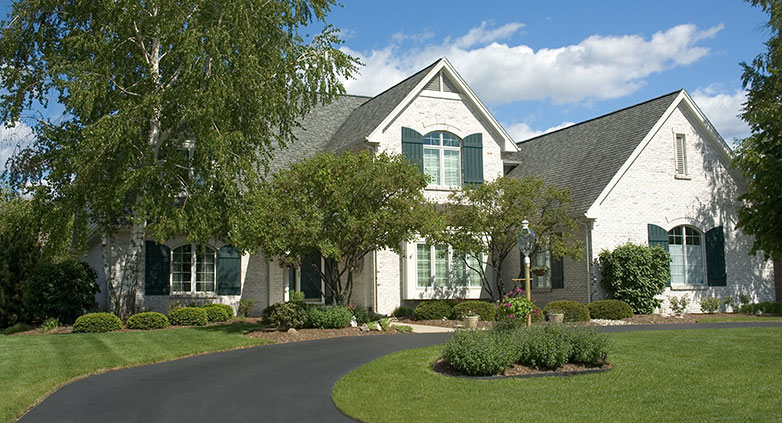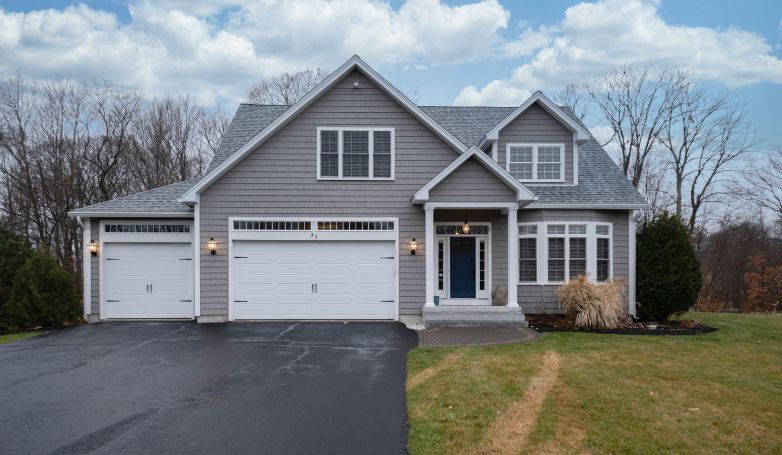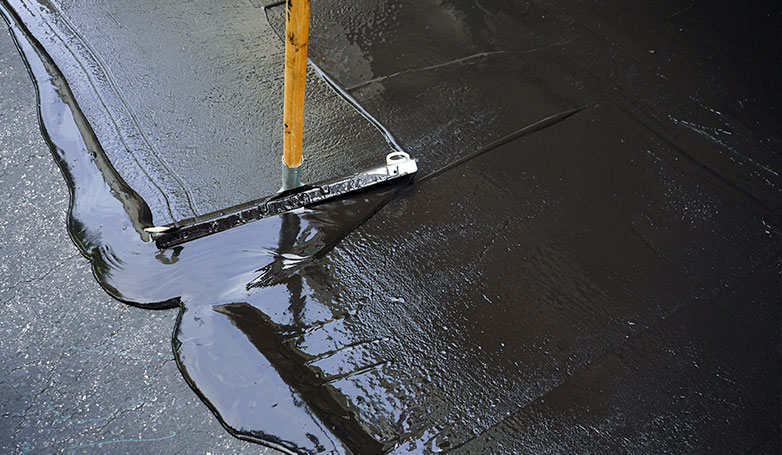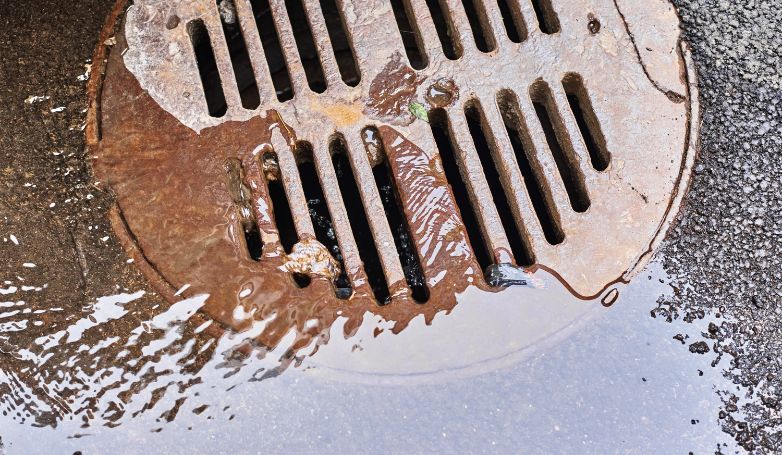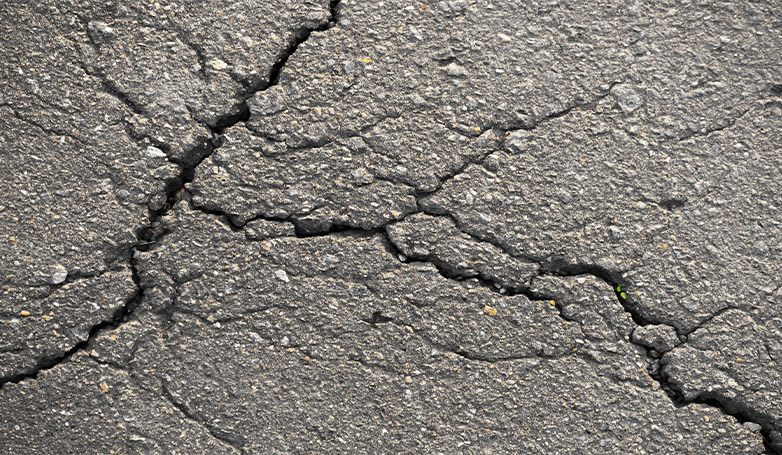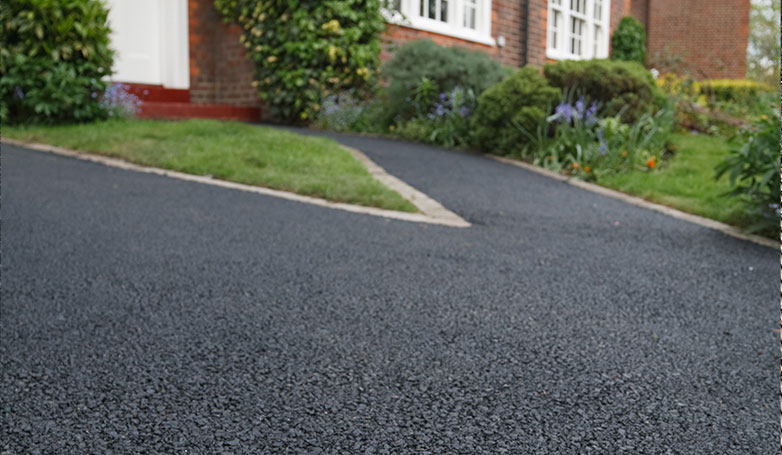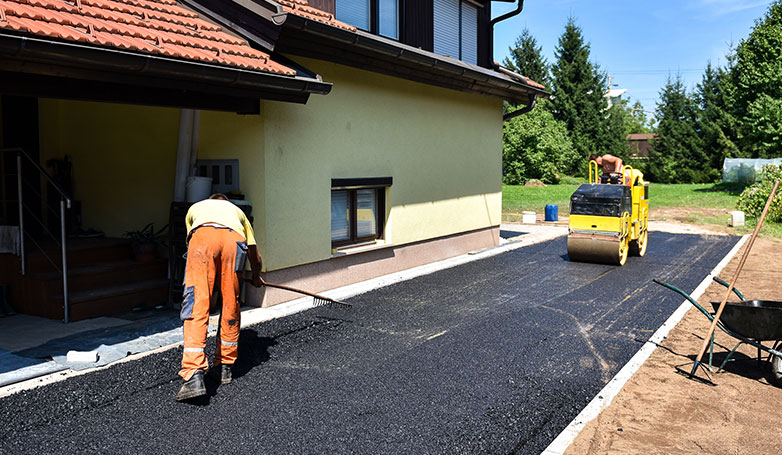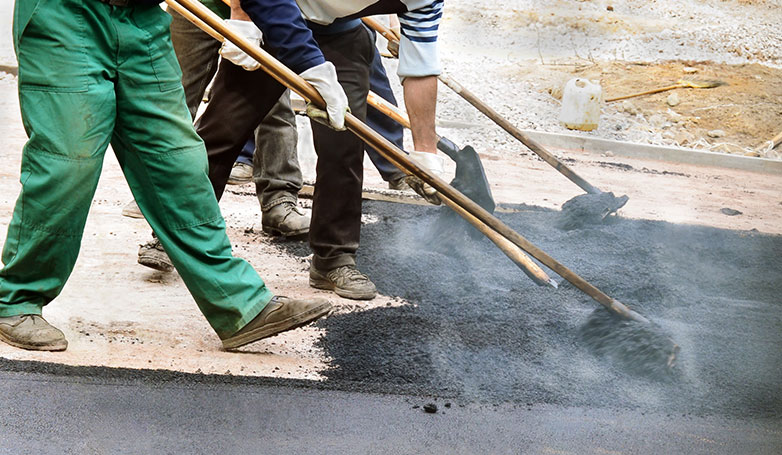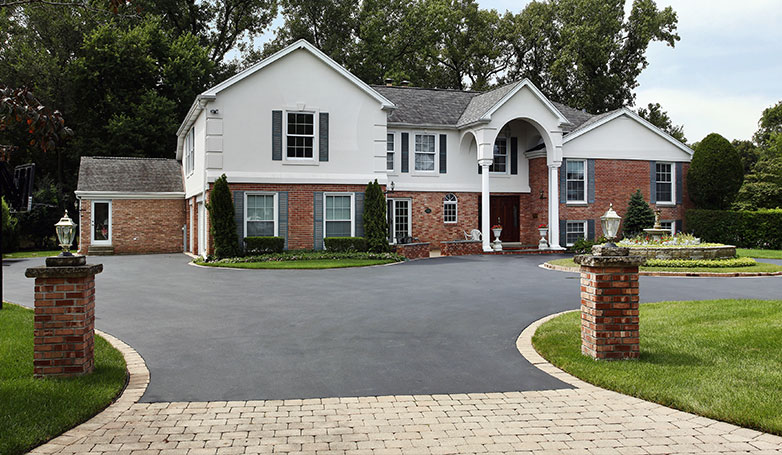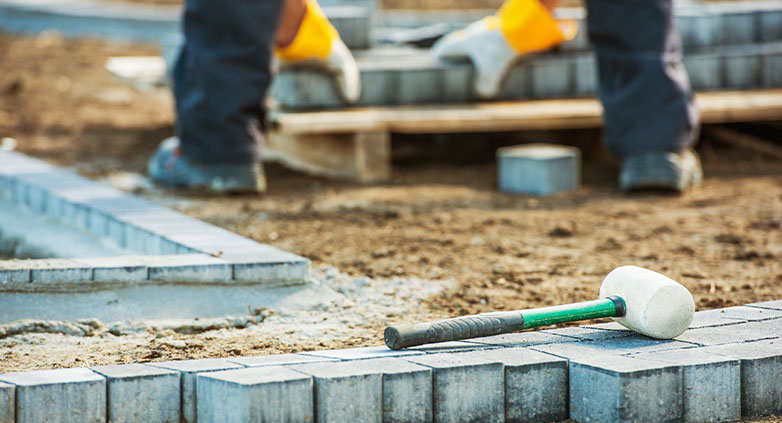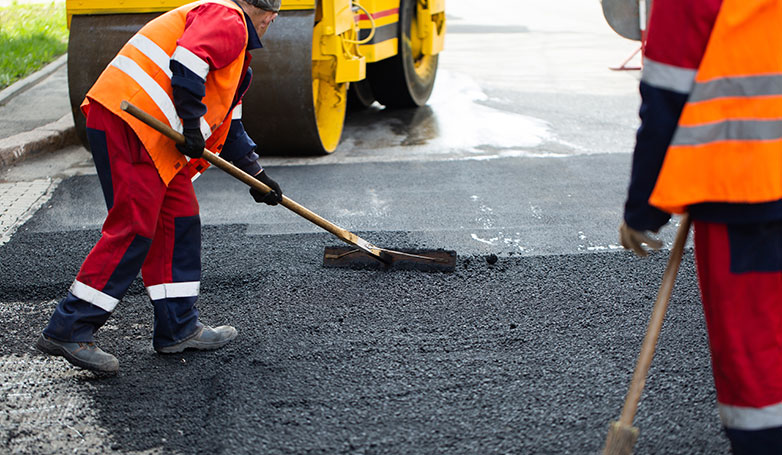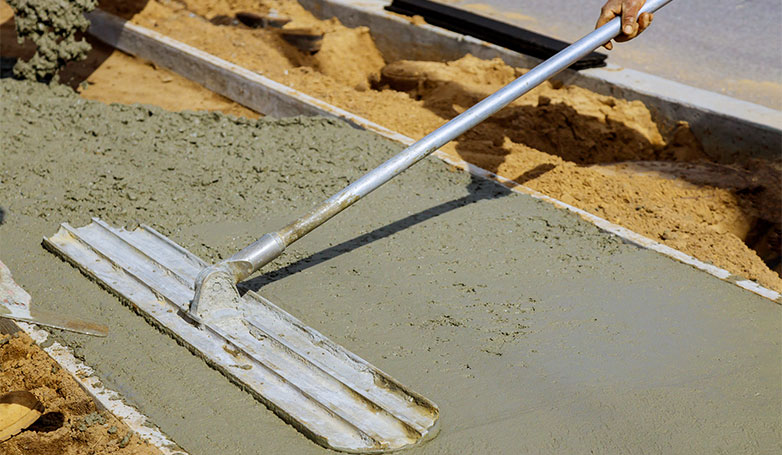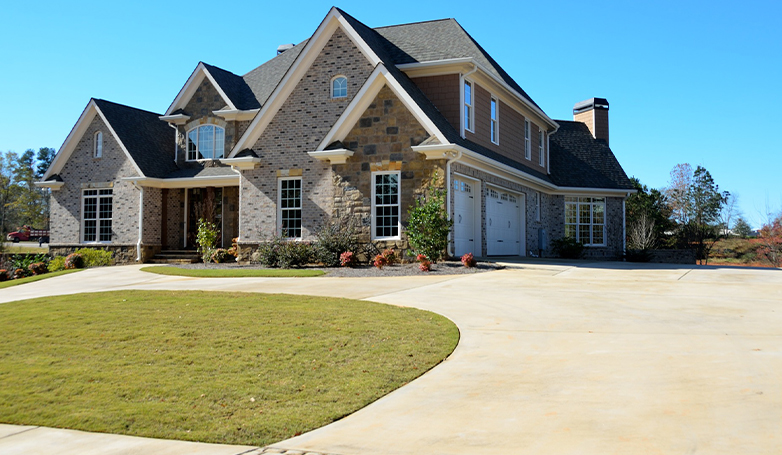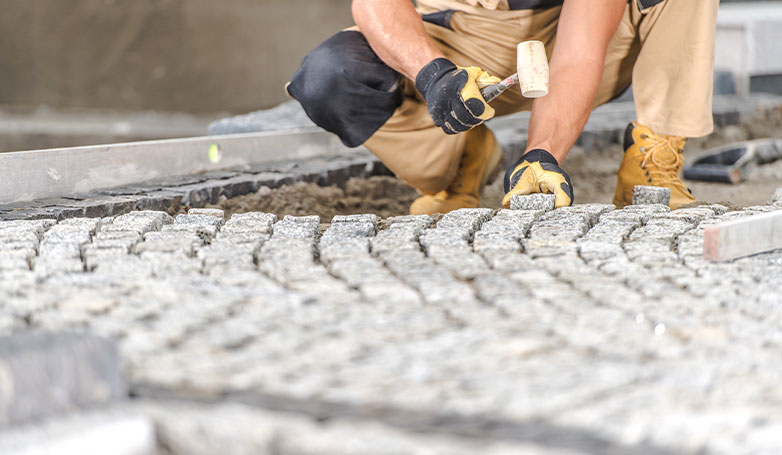Sloping driveway drainage solutions are effective in managing water-related issues on different types of driveway surfaces. Usually, a driveway contractor tries to find the major source of flood or standing water before he concludes on the best method to solve your drainage problems. Some buildings may require a new driveway placement and an efficient drainage system installation.
Driveways are to drain with a minimum slope of one-half percent (1/2%) and a maximum transverse slope of five percent (5%). This solution ensures excess water doesn’t build up to destroy your driveway or augment flooding. Common sloping driveway drainage solutions include digging trenches to redirect the flow of water from your driveway into water bodies, installing drainage systems using swale or french drains, and replacing your driveway pavement with porous pavers.
Your search for top-tier drainage solutions for sloped driveways ends here. In this comprehensive guide, we unravel various effective drainage strategies, demonstrate methods to optimize your driveway’s incline, and emphasize the importance of a tailored drainage solution. Let’s delve into these insights without further ado!
Driveway Placement
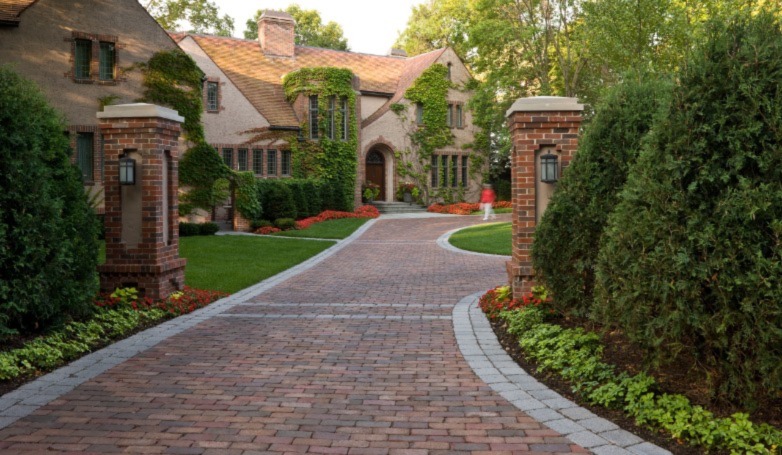
When you decide to create a driveway, there are a few things you need to put into consideration. You will need to consider the safety of your driveway, easy access, the aesthetics that match your taste, and effective drainage. To get the best out of your driveway, you must place it in the right location, and it must be spacious enough to meet your demands. After considering the location and shape, you must pay attention to building an effective drainage system. Let’s take a look at the factors to consider when placing a driveway.
Driveway aesthetics
Your driveway aesthetics covers how you want your driveway to look. Ensure your contractors help you place your driveway in the right space. Where your guests and friends can have a beautiful view of the surroundings when they come in.
The Driveway location
When selecting the location for your driveway, prioritize ground stability and efficient drainage. The chosen area should be capable of supporting heavy vehicles without risk of subsidence. Consider the soil type; sandy or gravelly soils offer better drainage compared to clay, which can retain water and lead to instability. Incorporate landscaping features or drainage solutions like French drains or grading to direct water away from the driveway and prevent erosion or water damage. Also, assess the proximity to trees as roots can grow underneath and damage the driveway structure.
The size and shape of the driveway
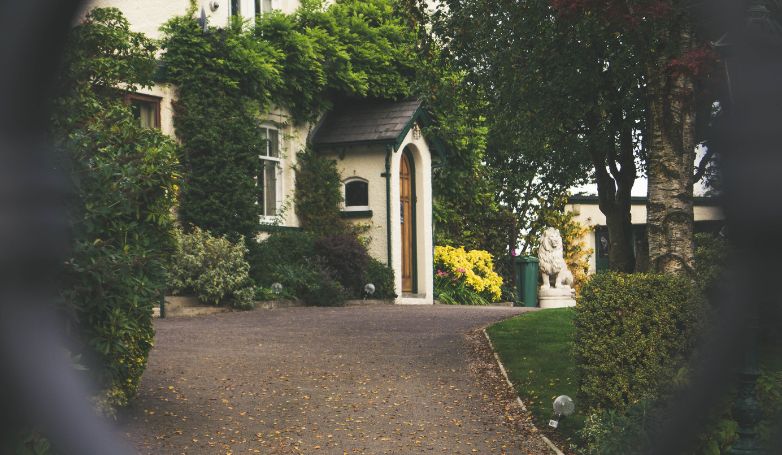
The size and shape of your driveway are crucial, particularly for sloping driveway drainage solutions. Consider the number of vehicles and the need for extra maneuvering space. A curved driveway can enhance aesthetics, while a straight one might suit tight spaces better. Working with your contractor to optimize space is essential for the driveway’s functionality and appeal.
Check your state driveway regulations
It’s vital to adhere to local regulations and zoning laws when installing a driveway. These regulations can vary significantly, covering aspects like the width of the driveway, its distance from the property line, and the materials used. Some areas may have specific requirements for managing runoff or environmental considerations. Contact your local building authority or planning department to understand these regulations and obtain any necessary permits. This step is crucial to avoid potential legal issues or the need to modify or remove the driveway later due to non-compliance.
Drainage system
A poor drainage system can ruin your homes and businesses. It can mess up your surroundings pretty badly and cause more damage to your driveway surface. Standing water, flood or mud can destroy the toughness of your driveway surface and cause it to crack or degrade early. It’s important you pay attention to building a drainage system that allows water to drain to it or install permeable driveways that constantly absorb water from your driveway surface.
5 Ways To Fix Sloping Driveway Drainage
To drain puddles, flood water, or provide a downward flooding drainage solution for your driveway, you will need to access the water source. If you can locate where the problem is coming from you will be able to provide a solution. The most suitable sloping driveway drainage solution is to build or install drains on your property. We have a number of driveway drains that can divert water from your homes and property. These drains can be installed on any type of driveway; concrete, asphalt, stone slabs, or gravel.
1. Install a Drainage Swale
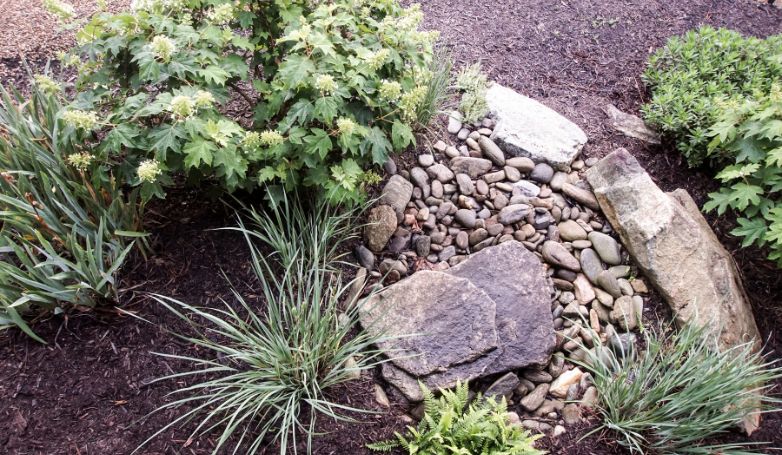
A swale is an open channel that gathers all standing water or flood water away from your driveway surface. Most swales are installed at the end of the driveway or by the edge to ensure an easy flow of water from the surface. Let’s take a look at some of swales interesting benefits and why you need to install one on your property:
- Reduce gathering water and runoff water; swales direct water away from your property into local water bodies.
- Swales are an effective water filter; they remove dirt and other pollutants from flowing alongside clean water into the water bodies. When you install swale on your driveways you are joining the world to build an eco-friendly driveway environment for the aquatics and you are improving the safety of your driveway. Swales also help improve the safety of your driveway.
- Swales can add to the value of your property and enhance the curb appeal of your homes.
2. Install a Driveway Drain
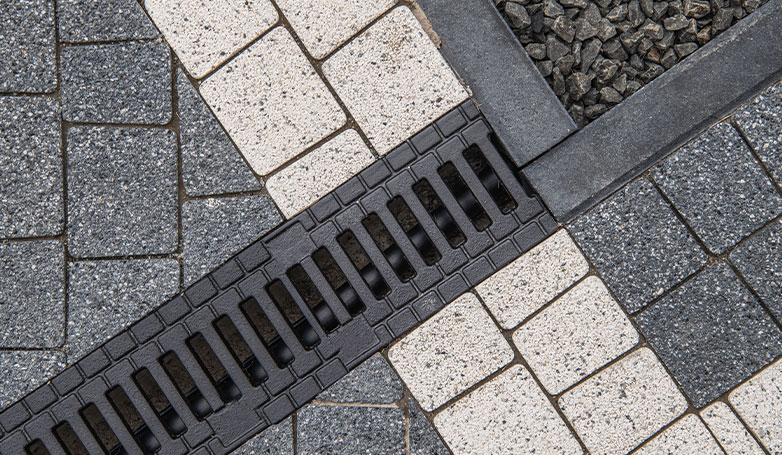
Driveway drains navigate standing water into any nearby waterways. Routine drainage maintenance will preserve the life of your driveway and help keep your driveway dry. To ensure an adequate flow, you should take some time out weekly or monthly, especially during heavy rain, to ensure that your drains are not blocked or obstructed. When you find any obstruction, you can remove debris, or even power wash your drains. Some of the benefits of a driveway drain include the following;
- Reduce the amount of standing water from your property.
- Reduce the risk of water flooding into your homes.
- Driveway drains keep your driveway dry and reduce the growth of weeds on your property
- Driveway drains improve water quality by filtering pollutants and reducing mud from driveway surfaces.
3. Install a French Drain
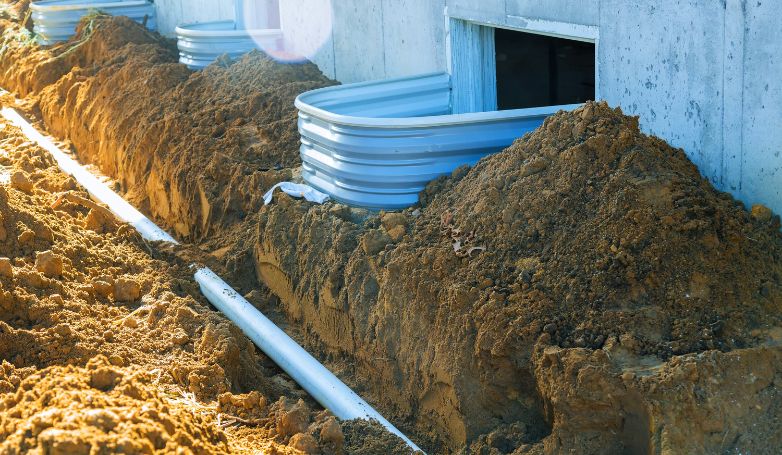
French drains are dug on downward-sloping driveways to fix drainage problems. A French drain is installed with layers of gravel or stone and a perforated pipe which helps divert water from your driveways. French drains can be installed on gravel driveways, concrete driveways, and other types of driveway pavements. They help you redirect the flow of water and dry up standing water form your driveway surface. The benefits of french drains are not limited to the following;
- French drains reduce the growth of algae, moss and mold from your property
- They protect your property from flood and erosion.
- Also, they protect the vegetation around your driveway and prevent water from penetrating through the roots of your plants.
4. Install Channel Drains On Your Driveway
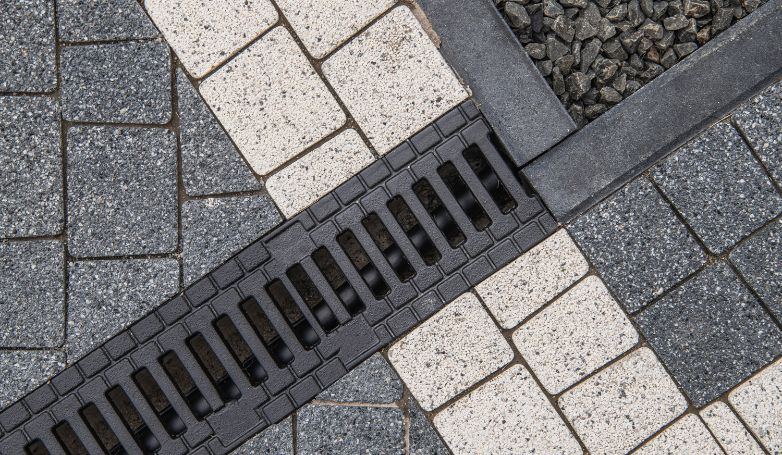
Channel drains are made up of straight strips that act as collecting tubes. Water from driveway surfaces flow into the drains and are collected into water bodies. Here are a few benefits of channel drains that can guide your choice of drainage system:
- If you are looking out for an easy to install drainage, then channel drains are the best drainage system for you.
- They are a good option for homeowners looking to make their homes appear more modern. Channel drains complement any landscape design and come in various styles.
- Channel drains are sustainable and made from durable eco-friendly materials that will help preserve the integrity of your driveways.
5. Install Permeable Pavers
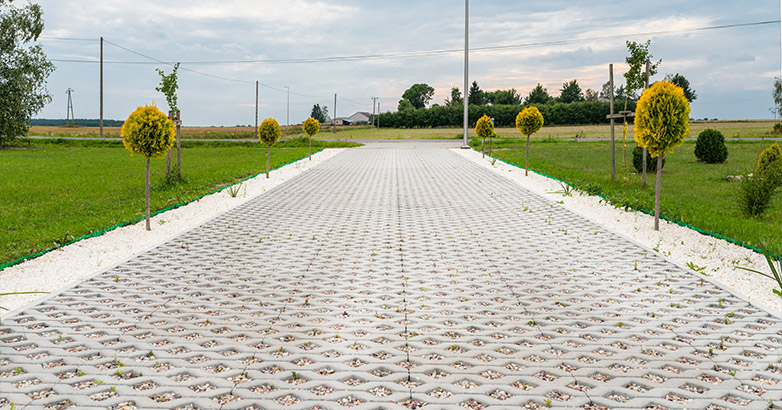
Permeable pavers allow water to pass through the surface of your driveway into the soil. Instead of standing water, permeable pavers drain the water into the soil and reduce stormwater runoff. Gravel, grass, sandstone, and crushed concrete are an example of a driveway made with permeable pavers. Permeable pavers naturally filter water into the ground.
Permeable pavers have many exciting benefits, some of which include the following;
- They are low maintenance and do not require specialized equipment or a high budget to keep functioning.
- Permeable pavers don’t just absorb water from the surface of your driveway; they are also hundred percent sustainable and durable.
- With permeable pavers, you can explore your creativity and try different styles and colors while maintaining an effective drainage system.
- Permeable pavers improve water quality by filtering the water that goes into local water bodies and waterways.
How Can Porous Driveway Help Sloping Driveway Drainage Solution
Porous driveways absorb water from the surface of the driveway into the soil. This is a more effective way of preventing flood or standing water. Permeable pavers can be a bit costly depending on the size of your driveway and it location. However, a permeable paver is a good investment if you live in areas with heavy rainfall or flood. Porous slabs also acts as a filter; they help remove debris and pollutant from the water being absorbed. Porous driveways are made with paving materials like pebblestone, interlocking pavers, grass pavers, clay pavers, rubber pavers, interlocking pavers, gravel, and other permeable materials that drain water.
How Does Maintenance Of Driveway Surface Improve Sloping Drainage
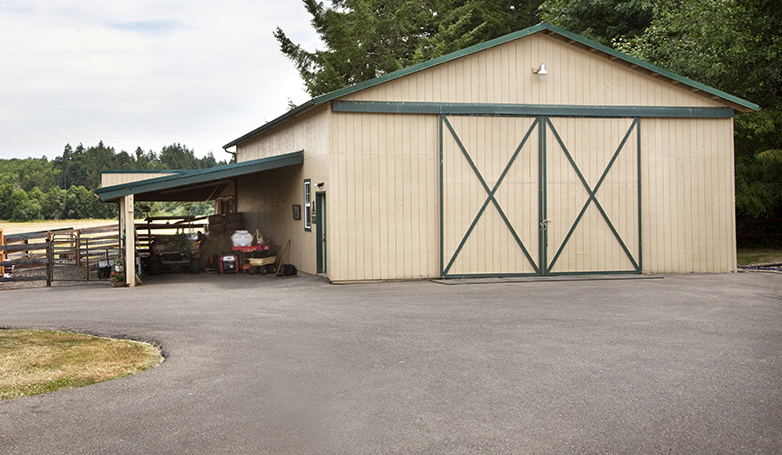
Driveways are made up of different paving materials, some of which require extensive maintenance, while others will do fine with basic routine cleaning. Maintaining your driveway and drains and putting in energy to ensure it stays clean will help the driveway drain water faster. If you are facing any sloped driveway problem, you should check your driveway for any defect that might add to the draining challenge. Also, fixing potholes and cracks on your asphalt, concrete, or other pavers will help prevent sloping and standing water.
Read more: Brick Driveway Edging
FAQs about Sloping Driveway Drainage Solutions
Addressing drainage issues in sloped driveways is crucial for maintaining their functionality and longevity. To help you navigate through common concerns, here are some frequently asked questions with detailed answers regarding sloping driveway drainage solutions:
What is the best drainage for a sloping driveway?
The best drainage system for a sloping driveway typically involves channel drains, also known as trench drains. These are installed along the driveway’s slope, capturing water as it flows downhill and redirecting it away from the driveway and adjacent structures. Additionally, a well-designed grading plan, ensuring the driveway slopes away from the house and into a safe drainage area, can be highly effective. Permeable paving is another excellent option, allowing water to seep through the surface and into the ground below.
What is the solution to a sloping gravel driveway drainage?
For a sloping gravel driveway, effective drainage can be achieved through a combination of surface grading and the installation of a French drain system. The grading ensures that water flows away from areas where it can cause damage, while the French drain — a gravel-filled trench that includes a perforated pipe — redirects water from the driveway. It’s also important to maintain the gravel surface regularly to ensure it remains level and compacted, which helps in managing runoff.
How do I redirect water away from my driveway?
Redirecting water away from your driveway can be done by implementing proper grading, ensuring the driveway slopes away from your house and toward areas where water can safely disperse. Installing drains, like channel or trench drains, along the driveway can also effectively capture and redirect water. In addition, consider using swales — shallow ditches with gently sloping sides — alongside the driveway, which can be landscaped to blend with your yard while serving as efficient water redirection tools.
How do you fix a sloping driveway?
Fixing a sloping driveway involves addressing both the slope and the drainage. If the slope is too steep, it may require regrading to a more gentle incline. This could involve adding or removing material from the driveway’s surface and ensuring proper compaction. For drainage issues, installing drainage systems like trench or channel drains, or even a series of smaller culverts or pipes, can help manage water flow. If the surface is eroding or unstable, adding a more stable paving material, like asphalt or concrete, may be necessary. Regular maintenance is also key to keeping a sloping driveway in good condition.
Conclusion
Driveways should be sealed after installation or after a good pressure wash. This will help maintain its integrity and also prevent water seepage into the foundation. A good sealant will also protect against growth of algae, mold or moss from the surface of your driveway. Once you seal your driveway the surface becomes smoother and speeds up the flow of water into your drainage system.

